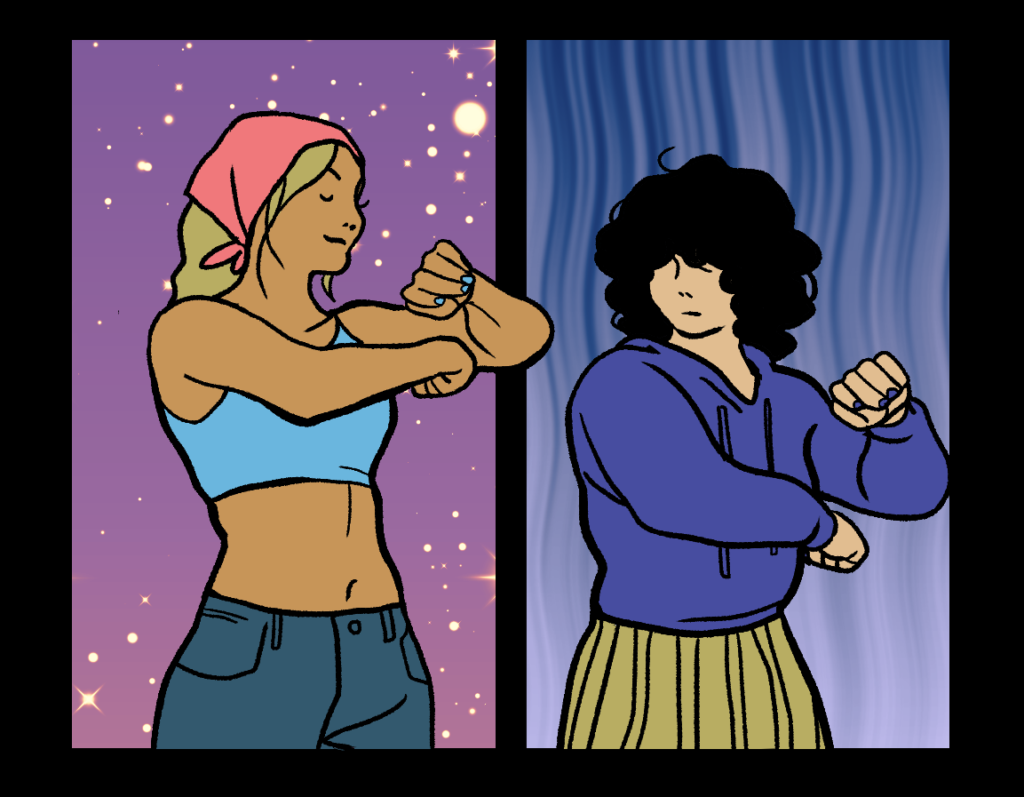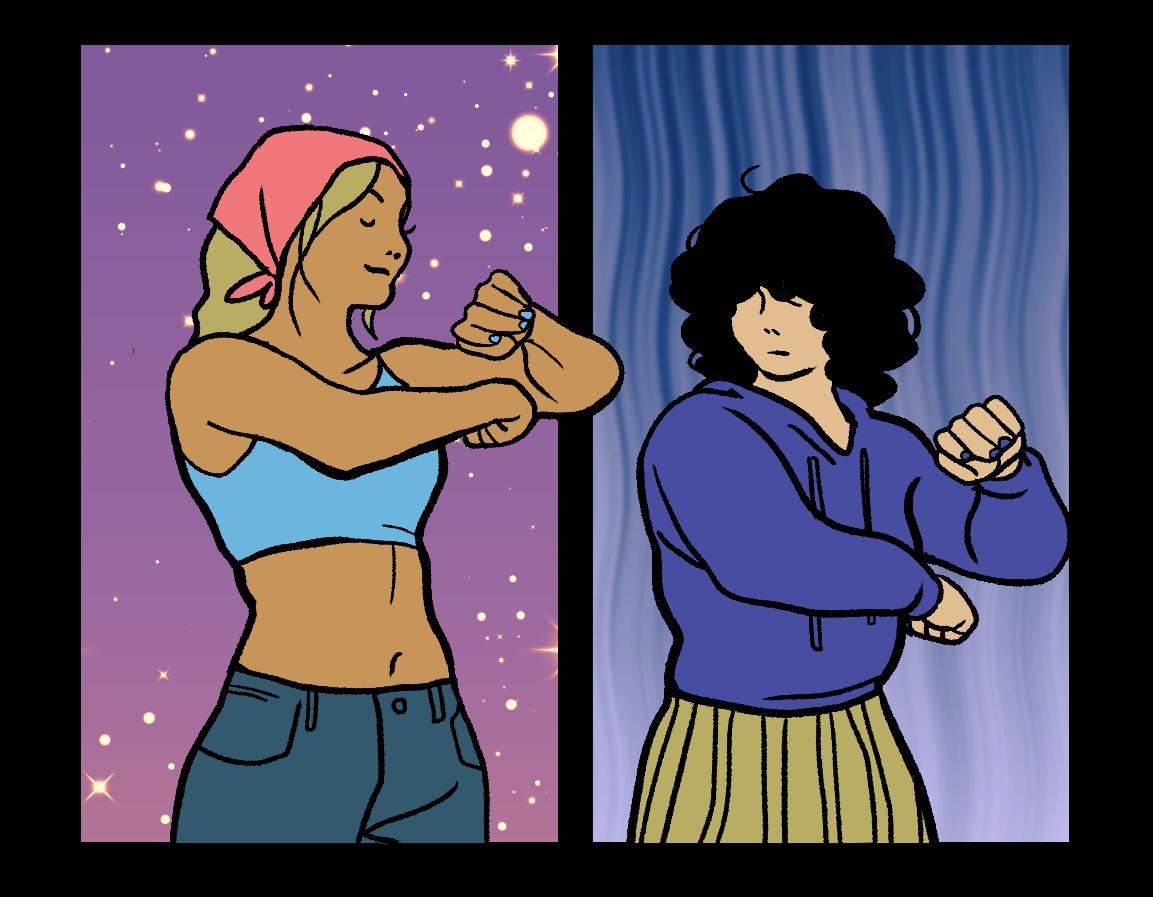“Mirror, mirror on the wall. Who’s the prettiest of them all?” Everyone is. Including you. No matter what TikTok’s beauty trends want you to believe.
The popular video-sharing platform, with over one billion users, needs no introduction. Its huge library of short clips ranges from dancing to awareness campaigns to DIY hacks. But what happens when anyone in the world can create anything and post it on a widespread platform? Not all of the content will be good for you. TikTok has a dark side: its toxic beauty trends.
An air of self-deprecating humor pervades the platform. People with large followings keep this population entertained by creating more and more fault-finding content — especially in regard to people’s looks.
“This filter lets you know if you have full lips or not.”
“You’re attractive if you have eight to 10 teeth showing when you smile.”
“Apparently, this filter shows how good your eyebrows look.”
“If your forehead, nose, and lower mouth are of the same length, then you have a perfect face.”
“Use this effect to adjust the size of your features.”
Often paired with catchy background music, these comparison trends easily catch your attention. With the strategic hashtag #fyp, creators ensure that these videos appear on your “for you page” (fyp) and compel you to watch them.
Human nature imbues within us a conformist tendency to follow the crowd to gain approval. As a result, we look at the huge number of views on these posts and think following these trends is the right thing to do. So we hurriedly download the filters or rush to the mirror to fake the biggest smile we can muster and curiously count our teeth.
Curiosity kills the cat. Likewise, the inclination to compare our looks kills our confidence.
We see all the likes on these videos, and the bandwagon effect compels us to like them too. TikTok’s algorithm then believes this is the type of video we enjoy and will bombard our fyp with more, leading us down a bottomless pit of toxic beauty standards.
This reflects in our personal lives as we grow overly conscious of ourselves in public and scan the faces around us to check who has the most perfect TikTok face. The newfound impulse to constantly compare each other intrudes our minds as a parasitic whisper of insecurity, taking a huge toll on our mental health.
Maybe I’m just really stubborn, but I don’t understand why I should let anyone else dictate how to feel about my body.
Why is the definition of beauty restricted to only full lips, small pointy noses, high cheekbones, etc.? Media has been sustaining Western beauty ideals for generations and has failed to consider that different cultures and countries have their own beauty standards. What is considered a flaw in one country or culture is pretty in another. You might not believe it, but I find dark circles (the proof you worked hard until late at night) and scars (the proof that you’ve survived battles) beautiful. And I’m sure there are plenty of others who do, too.
My point is that we need to strive for body positivity because every facial feature is beautiful in its own way. We need to uplift each other, celebrate each other’s uniqueness, and spread positive messages — not comparison tests.
TikTok beauty standards sort people into groups according to the sizes of their noses, foreheads, or lips. They diminish a person to nothing more than their looks. People are whole individuals with far more interesting qualities than their forehead size.
It’s who you are and what you do that matters. It’s the way your eyes light up when talking about your favorite book or the way you take care of your sad friend that makes you beautiful. As we age and grow wrinkles, it’s the things we did that we’ll be remembered for, not what we looked like 20 years ago. Trust me, no one’s actually counting and committing to memory how many teeth are in your smile.
So, next time such toxic comparisons pop up on your fyp, I want you to pause and ask yourself if it’s helpful to watch, or if you want to spread the message to others. If not, click on that “not interested” option or scroll away. You’ll be doing your future self a great favor by avoiding inhibitors to your mental health right now. We’re the first person we can count on to love and appreciate ourselves.


